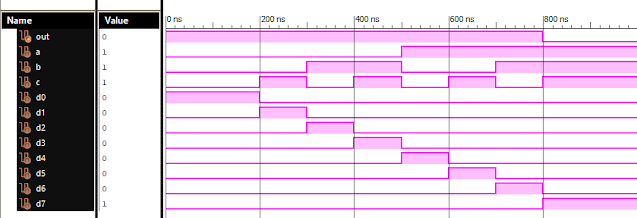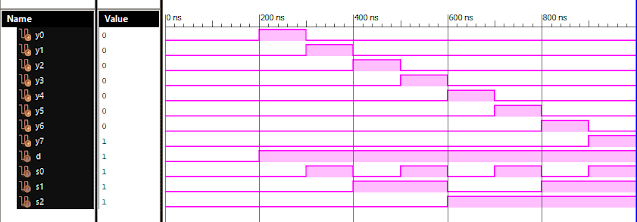Latest Post
Optimization: Bound Phase Method
- Get link
- X
- Other Apps
Bound Phase Method Algorithm in C
#include<stdio.h>#include<math.h>
double myFun(double x);
int main()
{
double xw,a,b,fa,fb,fxw,D,y ;
int k,o,z;
float x[100],fx[100];
k = 0;
start:
printf("Enter x[0]:");
scanf("%lf",&xw);
printf("Enter D:");
scanf("%lf",&D);
a = xw + D;
b = xw - D;
fxw = myFun(xw);
printf("\nf(x0) = %.2lf",fxw);
fa = myFun(a);
printf("\nf(x0 + D) = %.2lf",fa);
fb= myFun(b);
printf("\nf(x0 - D) = %.2lf",fb);
printf("\nx[%d] = %.2lf",k,xw);
x[0] = xw;
fx[k] = fxw;
o = k+1;
if (fb <= fxw && fxw <= fa)
{
D = -D;
goto jump1;
}
else if (fb >= fxw && fxw >= fa)
{
goto jump1;
}
else
{
printf("\n\n\tChange Initial Guess...\n\n");
goto start;
}
jump1:
x[o] = (x[k] + (pow(2,k) * D));
printf("\n\nx[%d] = %.3f",o,x[o]);
fx[o] = myFun(x[o]);
printf("\nfx[%d] = %.3f",o,fx[o]);
if (fx[o] < fxw)
{
if (fx[o] < fx[k])
{
k = k + 1;
o = o + 1;
goto jump1;
}
else
{
printf("\nBounded range: (x(%d),x(%d))",k-1,k+1);
printf("\nk = %d",k);
}
}
else
{
goto end;
}
end:
return 0;
}
double myFun(double x) // function definition
{
double y;
y = ((x*x)+(54/x));
return y; // return statement
}
Output:
 |
| Bound Phase Method Optimization Algorithm |
- Get link
- X
- Other Apps
Popular posts from this blog
Verilog: 8 to 1 Multiplexer (8-1 MUX) Dataflow Modelling with Testbench Code
Verilog Code for 8 to 1 Multiplexer Dataflow Modelling module mux_8to1( input a, input b, input c, input D0, input D1, input D2, input D3, input D4, input D5, input D6, input D7, output out, ); module m81( output out, input D0, D1, D2, D3, D4, D5, D6, D7, S0, S1, S2); assign S1bar=~S1; assign S0bar=~S0; assign S2bar=~S2; assign out = (D0 & S2bar & S1bar & S0bar) | (D1 & S2bar & S1bar & S0) | (D2 & S2bar & S1 & S0bar) + (D3 & S2bar & S1 & S0) + (D4 & S2 & S1bar & S0bar) + (D5 & S2 & S1bar & S0) + (D6 & S2 & S1 & S0bar) + (D7 & S2 & S1 & S0); endmodule //Testbench code for 8-1 MUX Dataflow Modelling initial begin // Initialize Inputs a= 0;b = 0;c = 0;D0 = 1;D1 = 0;D2 = 0;D3 = 0;D4 = 0;D5 = 0;D6 = 0;D7 = 0; // Wait 100 ns for global reset to finish #100; // Add stimulus here #100; a = 0;b = 0;c = 1;d0 = ...
VLSI: 8-3 Encoder Dataflow Modelling with Testbench
Verilog Code for 8-3 Encoder Dataflow Modelling module encoder_8_to_3( input d0, input d1, input d2, input d3, input d4, input d5, input d6, input d7, output q0, output q1, output q2 ); assign q0 = ( d1 | d3 | d5 | d7 ); assign q1 = ( d2 | d3 | d6 | d7 ); assign q2 = ( d4 | d6 | d5 | d7 ); endmodule //Testbench code for 8-3 Encoder Dataflow Modelling initial begin ...
VLSI: 1-4 DEMUX (Demultiplexer) Dataflow Modelling with Testbench
Verilog Code for 1-4 DEMUX Dataflow Modelling module demux_1_to_4( input d, input s0, input s1, output y0, output y1, output y2, output y3 ); assign s1n = ~ s1; assign s0n = ~ s0; assign y0 = d& s0n & s1n; assign y1 = d & s0 & s1n; assign y2 = d & s0n & s1; assign y3 = d & s0 & s1; endmodule //Testbench code for 1-4 DEMUX Dataflow Modelling initial begin // Initialize Inputs ...
Verilog: 2 - 4 Decoder Structural/Gate Level Modelling with Testbench
Verilog Code for 2-4 Decoder Structural/Gate Level Modelling 2-4 Line Decoder module decoder_2_to_4( input a0, input a1, output d0, output d1, output d2, output d3 ); not (an0,a0),(an1,a1); and (d0,an0,an1),(d1,a0,an1),(d2,an0,a1),(d3,a0,a1); endmodule //Testbench code for 2-4 Decoder Structural/Gate Level Modelling initial begin // Initialize Inputs a0 = 0;a1 = 0; // Wait 100 ns for global reset to finish #100; // Add stimulus here #100; a0=1;a1=0; #100; a0=0;a1=1; #100; a0=1;a1=1; end Output: Verilog 2-4 Decoder Response Other Verilog Programs: Go to Index of Verilog Prog...
Verilog: 1to 8 DeMultiplexer (1-8 DEMUX) Dataflow Modelling with Testbench Code
Verilog Code for 1 to 8 DeMultiplexer Dataflow Modelling module demux_1_to_8( input d, input s0, input s1, input s2, output y0, output y1, output y2, output y3, output y4, output y5, output y6, output y7 ); assign s0n = ~ s0; assign s1n = ~ s1; assign s2n = ~ s2; assign y0 = d & s0n & s1n & s2n; assign y1 = d & s0 & s1n & s2n; assign y2 = d & s0n & s1 & s2n; assign y3 = d & s0 & s1 & s2n; assign y4 = d & s0n & s1n & s2; assign y5 = d & s0 & s1n & s2; assign y6 = d & s0n & s1 & s2; assign y7 = d & s0 & s1 & s2; endmodule //Testbench code for 1-8 DEMUX Dataflow Modelling initial begin // Initialize Inputs d = 0;s0 = 0;s1 = 0;s2 = 0; // Wait 100 ns for global reset to finish #100; // Add stimulus here #100; d = 1;s0 = 0;s1 = 0;s2 = 0; #100; d = 1;s0 = 1;s1 = 0;s2 = 0; #100; d = 1;s0 = 0;s1 = 1;s2 = 0; #100; d = 1;s0 = 1;s1 = 1;s2 = 0; #100; d = 1;s0 = 0;s1 = 0;s2 = 1; ...





Comments
Post a Comment